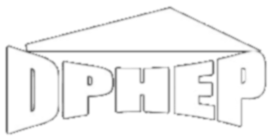The partners signed the collaboration agreement formally to work together in the framework defined by the agreement. The organization of the DPHEP Collaboration includes the following:
- The International Advisory Committee (IAC): A group of recognized experts in HEP and in the wider preservation community that provide the collaboration with guidance and advice.
- The Collaboration Board (CB): The directly involved experiments, computing centres, and other stakeholders.
- The Implementation Board (IB): Are the key contributors from each partner. The IB meets regularly and is responsible for driving the work of the collaboration forward.
- The Project Manager: Is proposed by the Implementation Board and approved by the Collaboration Board. The PM is responsible for coordinating the project. That means, the PM proposes events, creates funding proposals, and ensures information flow between the partners. The project manager is nominally appointed for a term of three years and the role may be filled by any of the partners.
- The Chairperson: chairs the Collaboration Board and liaises with the International Committee for Future Accelerators (ICFA). The chairperson is proposed by the Collaboration Board and ratified by the ICFA every three years.
The collaboration aims to create a natural forum for the high energy physics community to foster discussion, archive consensus, and transfer knowledge on technological solutions and the diverse governance applying to the preservation of data, software, and know-how in the high energy physics community. The collaboration coordinates common research and development projects and establishes common, discipline-wide tools. This coordination should harmonize the efforts at each of the partner institutes. Establishing such a uniform and ubiquitous approach should allow the partners to share the tools and data between each other and with corresponding initiatives in other fields. Potential areas of collaboration are identified in the DPHEP Blueprint document as:
- Tools and best practices for the ingest process
- Tools and best practices for making data discoverable for clearly identified communities under defined (Open) Access policies
- Policies and best practices for archival management
- Tools and best practices for “adding value” to data
- Generic validation framework and similar services
- Best practices and tools for preparing “future-proof” offline environments.
The collaboration also advocates to the community. This is essential since preservation is often an afterthought in the lifecycle of the experiments.
